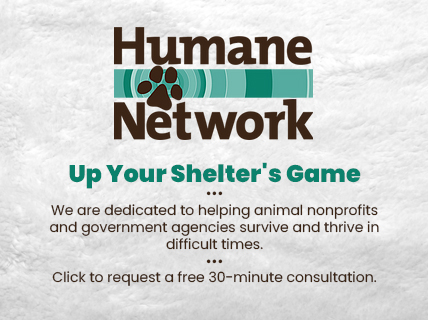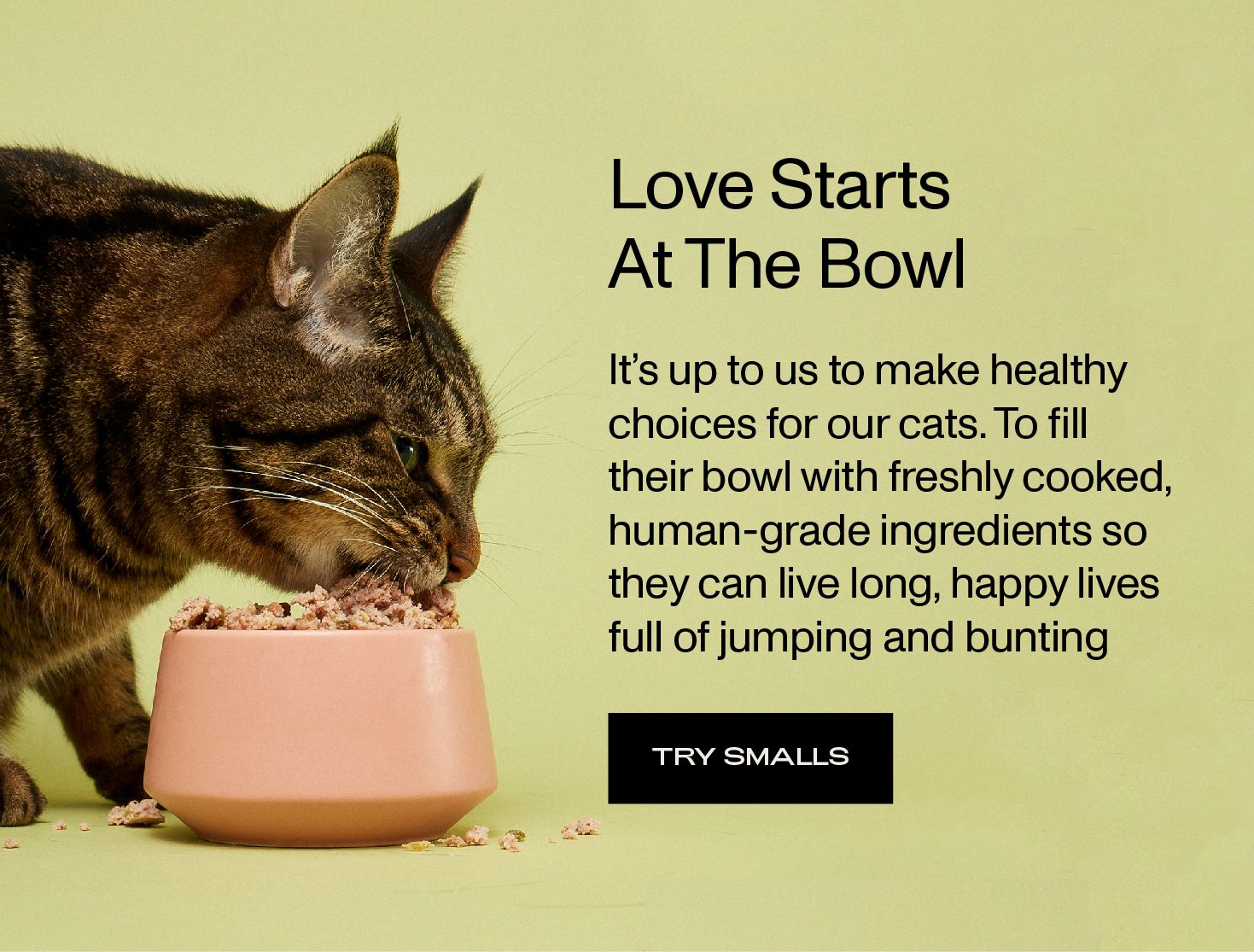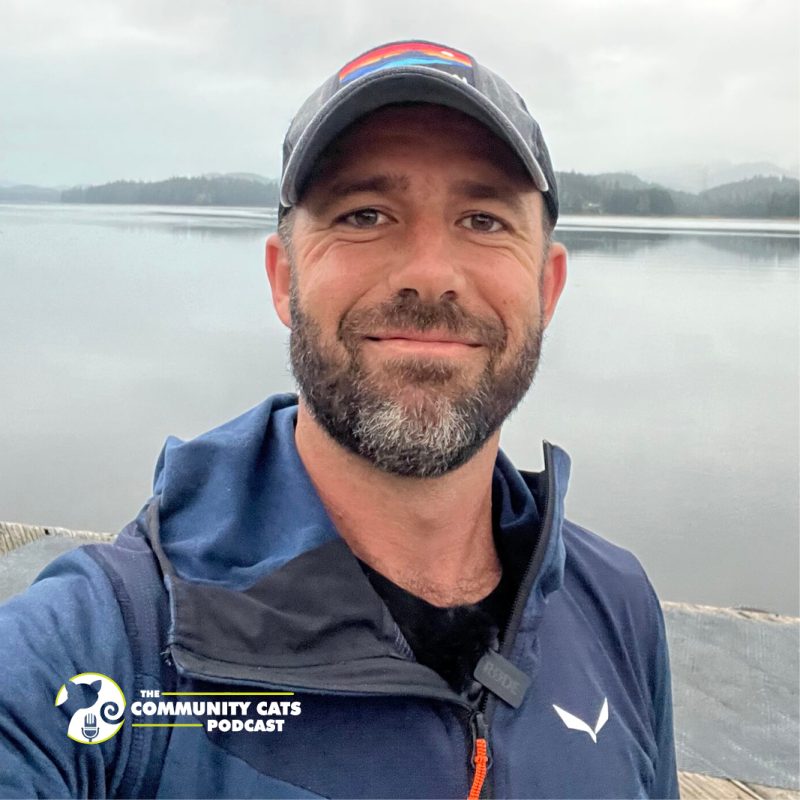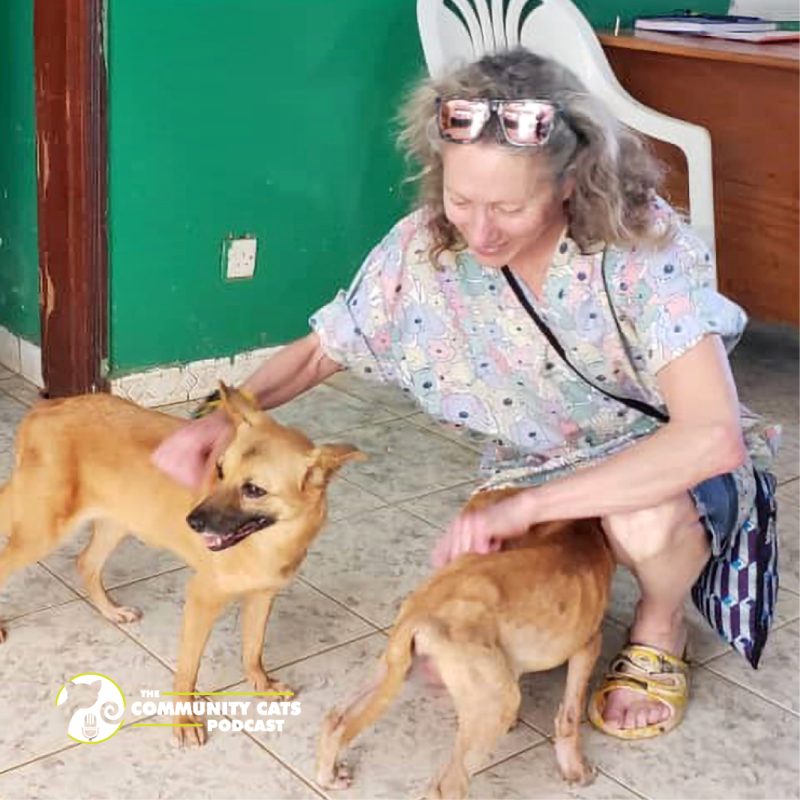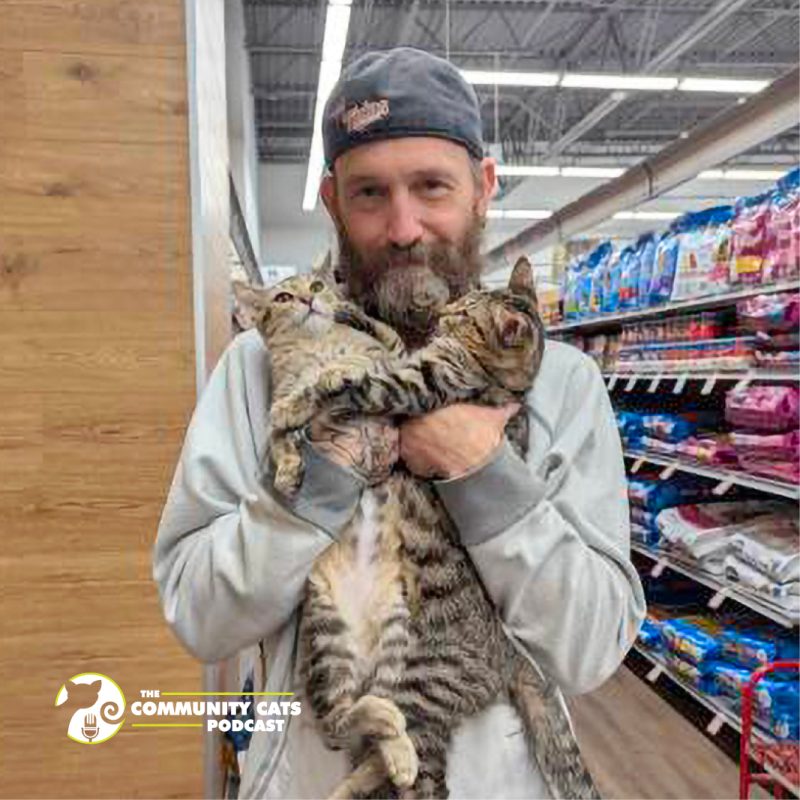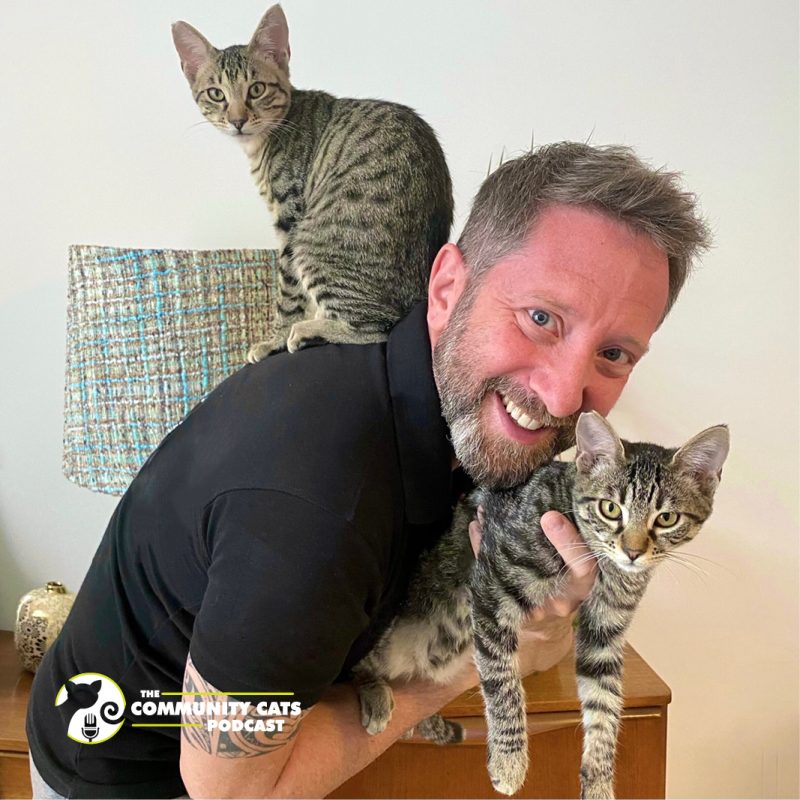
It’s never too late to set goals. Here’s to 2022!
December 30, 2021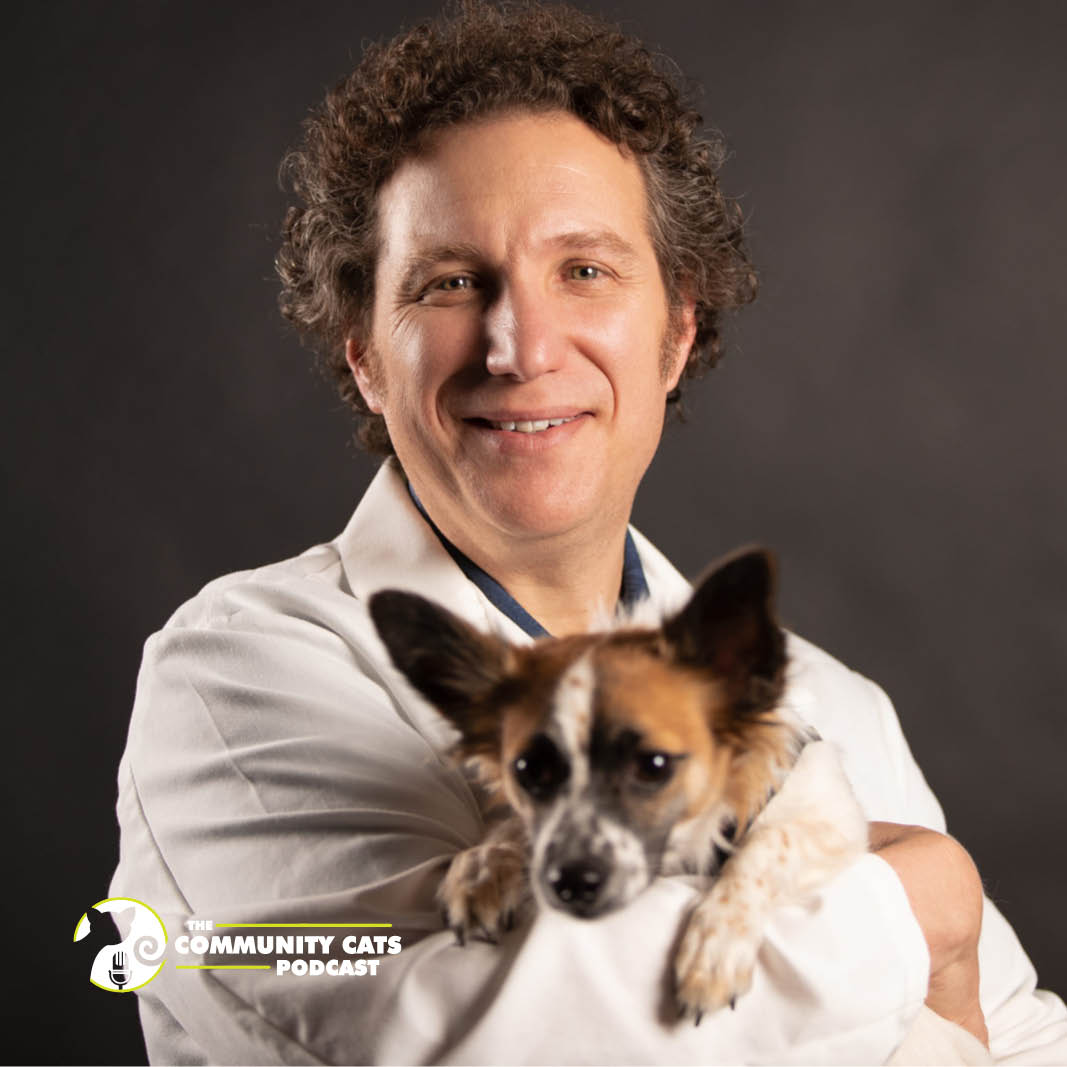
Blending Holistic and Traditional Veterinary Care for Cats with Dr. Gary Richter, MS, DVM
January 11, 2022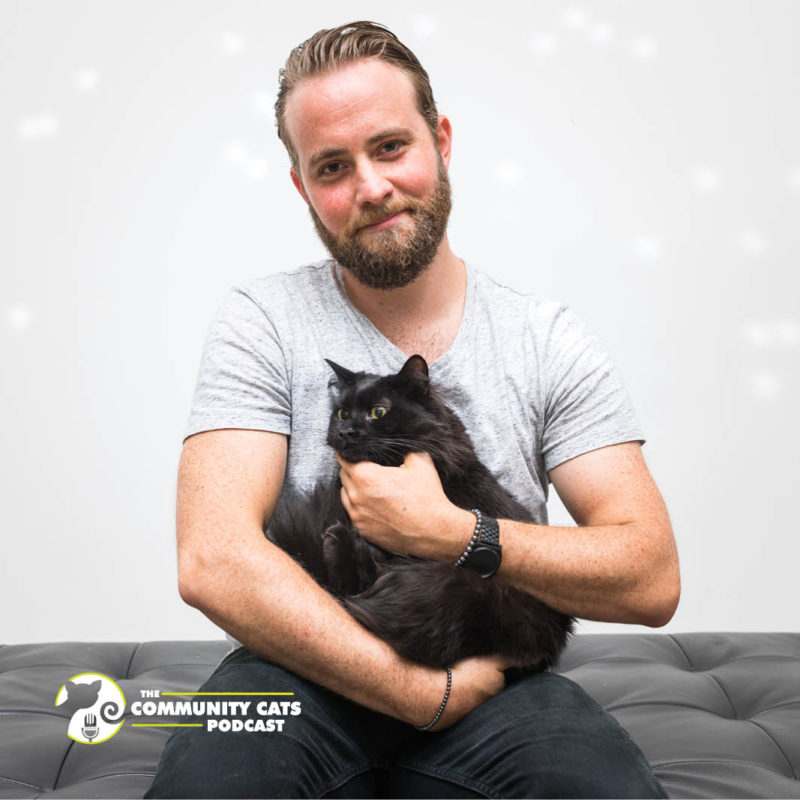
“Until the average person understands the implications of putting a cat outside —whether it is owned or not — and how there can be this huge ripple effect, we’re not going to get anywhere.”
Listen to Episode #437 Now
This episode is sponsored in part by Humane Network, Doobert.com and Maddie’s Fund.
Stacy connects with documentary Filmmaker Aaron Hancox to discuss how he came to find inspiration from his early documentary Catwalk: Tales from the Cat Show Circuit that lead him to his latest documentary, Running Wild: The Cats of Cornwall. Aaron confides that he initially expected the plight of cats in Cornwall to be a unique occurrence. Through his filmmaking, he has since learned that it is a story playing out in rural and underfunded communities all around the world.
Aaron discusses the film’s main characters as they try to reduce the number of un-owned cats in Cornwall. He relates that telling their story looked like a David v. Goliath fight, but yielded insight into possible solutions to community needs in Cornwall and beyond. Much of the progress made was impacted by COVID-19 and the constant need for accessible spay and neuter.
Aaron touches on municipal support, academic support, and private citizen support as being factors in the lives of community cats, as well as the importance of resources and financial support for education and community buy-in.
“Sometimes it might feel like you are chasing your own tail when you are doing this kind of work, and I hope that is a wake-up call to people who don’t understand this world.”
Watch Running Wild: The Cats of Cornwall now on iTunes, Prime Video, Google Play, Microsoft Xbox, VUDU, YouTube, and other VOD platforms. Follow Running Wild: The Cats of Cornwall on Facebook, Twitter, and Instagram.
Notes:
- Visit Tiny but Mighty Cat Rescue in Cornwall, to connect with Mellissa Alepins
- Visit Cattrap to connect with Mary Jane Proulx
- Learn more about Markum Street Films
Read Episode #437
CommunityCatsPodcast_Ep437_Hancox_220103.mp3
Kristen Petrie [00:00:00]
You've tuned in to the community cats podcast ready. Let's go.
Stacy LeBaron [00:00:08]
Welcome to the community cats podcast. I am your host, Stacy LeBaron. I've been involved helping homeless cats for over 20 years with the Merrimack River, feline rescue Society. The goal of this podcast is to expose you to amazing people who are improving the lives of cats. I hope these interviews will help you learn how you can turn your passion for cats into action? And today we are here with Aaron Hancox. Aaron is a lifelong cat lover with two rescues bow and fig and an award-winning producer and filmmaker Montreal since 2011. He has worked with the Canadian documentary company, Markham Street Foams in 2020. He wrote directed and produced the TV original documentary Running Wild: The Cats of Cornwall that explores the feral cat crisis, focusing on a hard hit town in Ontario, Canada. I learned a lot over the course of making the film from the staggering impact that stray and feral cats have on biodiversity and their classification as an invasive species to how deeply divided the public was on the issue and the dedication of rescuers concerned for the physical safety of the cats. Hancock says, “The bottom line is the feral cat crisis is a human created problem that requires a human fix.” Aaron, I'd like to welcome you to the show.
Aaron Hancox [00:01:24]
Thank you so much for having me.
Stacy [00:01:26]
Before we jump into information about the documentary, and it was great, wonderful. I really enjoyed watching it. First, if you can tell me, sort of, you know, how did you become passionate about cats?
Aaron [00:01:36]
I've always been passionate about animals. I'm just raising that kind of family, and I've always had pets myself. I became passionate about cats when quite frankly I was a single and I needed some companionship and I got a rescue cat and he really just lit up my life. And now, I have two and I'm married and I have a human child on the way, so they're just part of my life and the family that I want to create,
Stacy [00:02:01]
That's wonderful. It's great. It's funny. It's sometimes it's the other way around. We've had a couple of guests on the show where they've been like, “Oh, well, I got a cat and then women didn't want to date me because I was a cat man,” and all that kind of stuff. So it sounds like you were on the other way of the trend.
Aaron [00:02:15]
Yeah, I know it was definitely a bit of a hurdle and some women found it strange that there's a single man, there could be single men, straight men with cats, but I moved past it and just found a woman who accepted me for who I am. I actually converted her into becoming a cat person.
Stacy [00:02:31]
Wonderful. Well, congratulations. Good job. Good job. So let's talk about this documentary. Start me off from the beginning, you know, you don't just sort of walk around and say one day, I'd like to do a story on feral cats or, you know, on community cats. So, you know, how did you find out about Cornwall? How did this come forward? And really, it sounds like it was a multi-year project.
Aaron [00:02:52]
Yes. It was. I've made films with Mark and Street Films about animals before and we did a funny documentary about cat shows, which is a very different world, a lot of purebred cats and being in that world, I became acquainted with the cat rescue circuit because a lot of cat shows while they promote pure-breeding will try and raise money for charity. And these charities tend to be cat charities, cat rescue charities. So they were already on my radar and I got two rescue cats of my own and in just that adoption process and meeting people, I was really impressed with the work that cat rescuers do and so I had it in my mind that I wanted to make a film about them. And at the same time, I have family that lives in eastern Ontario near the town of Cornwall, which borders on Upstate New York and borders on Quebec. And I was getting these news reports of horrendous cat situation there. That was interesting. So I went to Cornwall and I met some amazing women involved with rescuing cats.
And I thought maybe this is the opportunity to finally make a film about cat rescue because you can see people in action in a really specific situation that I think is relatable to people all across the cat rescue world.
Stacy [00:04:12]
So, when you thought about doing this project, you're profiling the work of rescuers and the work that they're doing learning about trap neuter return, going into this project, you know, what were you thinking? What did you think you were going to find out about Cornwall?
Aaron [00:04:28]
I thought I was going to find out something, maybe a little bit more specific about Cornwall. Everything in Cornwall is actually happening all across the world and that there's really nothing that unique about Cornwall except for the fact that it's a pretty small town and there's even fewer resources there. So I was a little bit surprised about that. Yeah, and yeah, surprised at how few people were there to try and fix the situation.
Stacy [00:04:53]
So when you went into Cornwall, you met a couple of folks, one person was doing trap neuter return, another one was sort of doing rescue and maybe they have volunteers helping them and organizations, you know, tell us a little bit about the discovery of what you found out going into Cornwall.
Aaron [00:05:11]
Sure. There are a handful of people helping out in Cornwall, the two most prominent voices have been our two characters. There's Melissa who runs Tiny But Mighty Kitten Rescue and there's Mary Jane, who runs a TNR-focused organization, and they have in the past collaborated, where it makes sense, but both of them have a similar Focus, which is trying to reduce the number of unowned cats out in about in Cornwall. So Melissa with her cat rescue organization, she will find either pregnant cats occasionally or find more often than not abandoned or orphaned kittens that could have been born feral or perhaps were born to an owned cat, but for then dumped, somewhere and publicly and she raises them, gets them all their shots, and adopts them out to people in her area that want a pet. And that is what I was more familiar with because that is more or less how I got my two cats from a large organization here in Toronto in a really big city and the organizations I've dealt with have had dozens, if not hundreds of volunteers. In Melissa's case, it's just her and I think from a storytelling point of view and from a filmmaking point of view, that's actually kind of more interesting. You just got one person doing it, one place to point your camera at, and it's more of a David versus Goliath situation, which is from a filmmaking point of view, I thought was made a better story.
Stacy [00:06:36]
Yeah, no, no that it's very interesting and, you know, before we hit the record button, we were talking a little bit about some of my emotional frustrations while watching the documentary which was like, oh, these two women, they're trying to do so much, but there's so much more out there that needs to be done and there are obstacles. there's veterinary shortages, there's veterinary expenses. You know, when I was running a non-profit, I used to tell the folks that were out there trapping that for every one trapper I had, I needed four people doing fundraising for them, you know, so there's this scalability that has to go on and I was so frustrated by the lack of accessibility with private veterinarians and back for me in 2008, I was working with 14 different private veterinarians, and these folks were working with one and it's not a veterinarian that's close by, right? So, I was working with 14 private veterinarians and that wasn't even enough for me. So, you know, I created a mobile spay neuter clinic to be able to do higher volume. And so from my standpoint watching this is these poor women, they don't have the support of toolkit that I always talk about to be able to make the change happen that they know needs to happen. So therefore they're almost doomed to failure in the eyes of the birding community, you know, we were talking with a lot of those folks that you are interviewing about feral cats and the impact on the on the bird community and it's like, these women are working, so very, very hard. But yet, they're just not able to get to the numbers to be able to make that impact, to be able to reduce that cat population that would then impact the bird population.
Aaron [00:08:13]
Yeah. I mean, this is certain futility to it at times I think and I know that our characters are smart and understand that concept, and I can only imagine how demoralizing that must be when you have spent hours and dozens of hours of your time and all kinds of your own money and resources trapping cats, getting them TNRed. And then, you know the next day, you just see a dozen more, or you see a cat on the street that's been hit by a car. I mean, the level of compassion, fatigue, and burnout experienced by people like Mary Jane and Melissa and all of your communities, they see that you've worked with for years, it's just incredible. So I did hope that our film showed that idea of that, you know, sometimes it might feel like you're chasing your own tail when you're doing this kind of work and I hope that that is a wake-up call to people that don't understand this world to understand that, “Oh, don't worry about somebody else's taking care of it,” you know, but there's never going to be enough resources until this becomes more of a mainstream issue and until there's really a multi-pronged approach from public money, private money, academia, everybody has to come together, it can't just be private citizens, and it certainly can't just be one or two private citizens that are going to make a real dent.
Stacy [00:09:24]
So there you go, you're already thinking through based on doing this work sort of trying to think about solutions and what would a potential solution look like in Cornwall or anywhere else. I mean, you got so intimately involved with Cornwall you were at city council meetings, so you're talking about that public involvement. I think they allocated a certain amount of money potentially at some point in time. Based on that, you know, when you're looking at things, say Cornwall was your town, you were the mayor of Cornwall, you know, how would you solve this, and I hate calling it a problem but let's say solve this this challenge?
Aaron [00:10:00]
I think education is the first thing that needs to be addressed in a lot of places, especially places low-income neighborhoods. And this this goes for anywhere in the world and I didn't come up with this idea. This is from speaking with scientists and academics who have a number of agendas, including saving wildlife and saving birds, but also doing what's right for cats, making sure that all cats have a good quality of life. Until the average person understands the implications of putting a cat outside, whether it's owned or not and how there can be this huge ripple effect, we're not going to get anywhere. So I think education is the first thing that needs to happen. Money really helps with education, some public funds allotted to TNR initiatives to subsidizing spay and neuter for low-income people. There's all kinds of things that money can do. I mean, when you can really help a lot of situations, it's easier said than done because a lot of towns don't have a lot of money, a lot of cities don't have a lot of money, and when there's an option for a public official or public officials to put resources into something, the welfare of cats might not be top of the list. You know, there are a lot of problems facing many communities in North America. So it's tough, but I think it comes to a point where, as much as it's really expensive or costly to fix this problem, it can become even more costly to not fix the problem. People just have to dig deep and say, “Screw it, we're going to we're going to fix this; we're going to pay now, we're going to go into debt, we're going to do what we have to do, we're going to put off building that community center, or going to put off paving that road,” because people aren’t going to be enjoying their community if there's dead cats everywhere because they’re getting hit by cars, you know, that's or if the cats are, even if it's just a nuisance issue: cats are going through garbage or they're digging up your lawn or they're going to the bathroom outside. Not to mention, if you're humane person, you love animals, it just breaks your heart to see the suffering of these animals, or if you love birds. There's so many different reasons to get behind supporting this issue. I say this is as I'm looking at a cat outside of my backyard that's not mine. There's so many different motivations that people could have and should have for fixing this issue. Whether you're a cat lover or not, I think it's time people really come together.
--Start mid-roll advertising-- [00:12:16]
We interrupt this podcast for a quick trivia question. Where's the single place with answers to all of your animal welfare questions? Yes, even the one that kept you awake until 2:00 in the morning. Anyone? Anyone? Bueller? It's Maddie's Pet Forum. Maddie's Pet Forum is the only dedicated forum for our industry where you can find answers from colleagues fast and free. Stop doom scrolling and join today. Visit forum.maddiesfund.org/cats.
[00:12:46]
Could your animal welfare organization use a tune-up? Humane Network can help. You can get a free 30-minute consultation to talk through your challenges and get ideas on how your organization can be more successful with less stress from board development and fundraising to strategic planning and operations. Humane Network has got you covered whether you were a large or small nonprofit or government. It's a live and thriving program led by a certified animal behavior consultant. Features specially designed training for shelter and clinic staff on enrichment, stress reduction, safe, animal handling, and behavior modification. With Humane Network, you receive individualized advice and support customized to meet your organization's unique needs, and Humane Network can lighten your load by taking on fundraising communications and other tasks you struggle with. Contact Humane Network today for a free 30-minute consultation. Visit humanenetwork.org. That's humanenetwork.org.
[00:13:41]
A simple picture of an animal and foster or needing adoption just doesn't cut it; adopters want to see video of the animal in action showing off their personality but shelter software doesn't let you get video back from fosters or staff easily. They can't text it because video is just too big and posting to YouTube means you have to give them access. If only there was a way for you to get video back from anyone that you can use in your organization. Luckily the team at Doobert has solved this problem with their RescueTUBE module. Now you simply create a bucket and give that code to any of your staff, volunteers, or fosters to type into the Doobert mobile app. They can easily upload videos up to 10 minutes that you can easily download and use in your adoption efforts. Organizations across the country are using Doobert’s RescueTUBE to capture video of foster animals, adoption events, playtime, and behavior testing. ACOs are even using it to document cases in the field so they have video evidence. Check out RescueTUBE today at www.doobert.com where they make animal rescue simple.
--End mid-roll advertising-- [00:14:44]
Stacy [00:14:45]
Another challenge in many communities is just that they just don't have access to care. Whether it's affordable or not, affordable is not even an issue sometimes now because there aren't many veterinary practices in low-income communities and then, you know, to get to a clinic, you have to get there between nine and five during the day. Well, if you got a job, you get, you know, and you can't get out of the job, you can't get the cat there and yeah, and obviously, then there's cost issues. And I certainly know in Canada, the spay neuter or prices for cats in Canada are even significantly higher than they are in the United States, you know, higher than New York City costs, higher than Boston costs, and so, you know, really a challenge. And I think in Canada as well as in the United States, we are facing a veterinary shortage, as well as a technician shortage, and so even if you wanted to create a low-cost clinic and hire staff, veterinary students are coming out with $120,000 of debt on average out of school. So if you look at a practice that's offering you a $60,000 signing bonus versus a non-profit that's offering you, you know, a decent salary but not any of those kinds of benefits. There are challenges, very significant challenges because I would love to say we should have a low-cost spay neuter, clinic everywhere, basically, everywhere that it's needed but it's not something that's that attainable. Just even if we had the money, there are human resources that we have some challenges with and you said compassion fatigue at the rescue level. Veterinarians and technicians are challenged. They have some of the highest suicide rates of any profession. And so I think we have so many battles that we have to look at strategically from a higher level and then here we are, have boots-on-the-ground folks that are just trying to make it this week, make it next week. Tell me a little bit about Mary Jane and some of her trapping. She's out there trapping at 10 degrees below zero, spaying and neutering cats, and I know people have some opinions about whether to do spay neuter in the wintertime and how successful that is. How was it being out there and being part of that trapping in that super cold weather?
Aaron [00:16:50]
Yeah, Cornwall is no joke. It's effectively across the St. Lawrence from towns like Syracuse, New York. So, you get that kind of Lake St. Lawrence effect where it's just damp and cold and snowy and dark and miserable. And yet Mary Jane's out there trapping these cats, some of the cats that are trapped in the film are part of a colony, and that colony has a bit of a shelter, bit of like an enclosed un-winterized porch. So the cats get a little bit of shelter from the wind but it is damn cold. And we were out there filming and we set up cameras at night and I can tell you it's very uncomfortable. So a lot of cats do freeze to death and weather like that and it was a challenge to film. I mean frankly our cameras were freezing up. It was difficult to film, our batteries were draining really. So I can't imagine what it'd be like for a cat. And there's a scene in the film, where one of the cats in the colony is trying to drink water from a bowl and the water is frozen over, and he's tapping at the ice and it's just kind of heartbreaking. So yeah, it was very impressed with Mary Jane to speak to something you brought up earlier about the availability of vets; these folks have to drive to another jurisdiction in order to actually get some low-income care. Even in their own city of Cornwall, there was only one vet and it's not a subsidized or a low-cost vet so they have to drive to another jurisdiction that speaks a different language. I mean, there's a lot of French and English in that part of Canada, but still, I mean it, it's a different place, you know. It would be like, it's almost like driving over the border of Texas to Mexico, you know, so it's just crazy. It's just nuts that they have to go to this extent, but certainly admire it.
Stacy [00:18:39]
When did you actually conduct the filming? Did you do it before COVID, during COVID? How did that go and, you know, where are they now?
Aaron [00:18:47]
Sure. We started the filming I believe in 2018, long before COVID, and then there was a long pause of roughly 8 or 9 months while we tried to get the rest of the money together to make the film and get a broadcaster in Canada TVOntario on board, public broadcaster. And then when that happened, we started filming again in the summer of 2018 on and off, all the way on and off into just weeks before the first COVID lockdown in North America, anyway, right into February 2020, believe it or not. And then we were editing, right when we started editing, COVID happened and nobody was doing anything as you remember. Nobody was certainly, nobody was filming, and we were able to get most of the film edited and then we needed some more footage. It became really obvious. So it was June of 2020, we had been living with a pandemic for a few months, and we started going out and trying to get a few more things here and there, which was a challenge in and of itself because, you know, you think even hotels are closed for the most part back then, so going to Cornwall, it was a challenge. Even the drive from where I live in Toronto is almost 5 hours, so we're talking about driving, filming, and driving back, but we made it, we made it work. And we were really grateful to have had gotten most of this footage before COVID happened. But as you probably know, COVID really complicated the situation in Cornwall for cats even more because we had documented some progress in the film that the city was starting to put some public funds towards solving a problem. And of course when COVID happened that became less of a priority. And in fact, the local SPCA, which also works in the community, wasn't able to take in any cats. Shelters were effectively on lockdown. I mean nothing was happening and it was kitten season in the spring, so kittens were being born and it was just it was a mess. It was really tough for our characters and as bad as this situation was in the film, it got even worse for them for a while so they've been battling through. In terms of where they are now, I know that Melissa has been working very hard at trying to get a sort of like a pop-up come mobile clinic in Cornwall, there has been a mobile clinic that has come through before in the city five years or so ago. There's one larger one just in the province of Ontario and they have worked and they've done stuff but it just hasn't been enough. It's such a bad situation in Cornwall that they would need that mobile clinic to come every week for a year or so. And they were spaying and neutering hundreds of cats each day they came through. So Melissa's working on trying to get something more permanent or semi-permanent in Cornwall and Mary Jane is continuing her TNR efforts and she's really frustrated. I mean, she'll work so hard and then messaging me saying, you know, I just found another couple of dead cats in the road, like keep your cats indoors. So they're working hard and I'm still in touch with them and they've been really happy with the film and the awareness they've gotten locally. And now that the film is available in America, hopefully, there'll be some more attention. It is really like a universal story. The story of Cornwall could be really any town in U.S. or in Canada. It's a Rust Belt Town. It could be anywhere. It's a low-income place where the industry is more or less gone, jobs are short, it's tough times, and the cats are suffering, so sounds familiar I'm sure.
Stacy [00:22:10]
Unfortunately, it really does. But if folks are interested in finding out more about Melissa, and Mary Jane, I think you said, Melissa has an Instagram account and Mary Jane is on Facebook. So, we'll make sure we get those links in the show notes. Love to have folks reach out and connect with them, but if folks are interested in seeing the documentary, where would they do that?
Aaron [00:22:30]
The documentary is called Running Wild: The Cats of Cornwall, and it can be found on iTunes, Amazon, or almost anywhere you can find films to buy or rent. Just Google Running Wild: The Cats of Cornwall and watch the film.
Stacy [00:22:44]
Aaron, Is there anything else you'd like to share with our listeners today?
Aaron [00:22:47]
I might just add that the film, if you're not sure if the film is for you, there's a lot of other things in the film too beyond just the story of Cornwall and Mary Jane and Melissa; we do talk to scientists and ecologists that give another perspective on the outdoor and feral cat population crisis. And I think that's another interesting element to the film and something that I personally didn't know about. I'm a cat lover, my motivation was to make something that was sympathetic towards cats and people working with cats, but I was definitely interested in learning about the massive ecological ripple effect that is caused when we put our lovable furry animals outside, so I think, hopefully, there's enough in there to entertain people and inform them and get them passionate about doing what's right for our cats and for other animals and ourselves.
Stacy [00:23:35]
Excellent. And I did, I found that section very interesting and I'd love to have a chance to talk with some of those folks too. And it is interesting the whole cats and birds and, you know, our balance of nature in general, so it's very thought-provoking. Aaron, I want to thank you so much for joining me today and for being a guest on the show and I hope we'll have you on again in the future.
Aaron [00:23:57]
Thank you so much. I would look forward to that.
Stacy [00:24:00]
That's it for this week. Please head over to Apple Podcasts and leave a review. We love to hear what you think and a five-star review really helps others find the show. You can also join the conversation with listeners, cat caretakers, and me on Facebook and Instagram and don't forget to hit follow or subscribe on Spotify, Apple Podcast, Google Podcast, YouTube, Stitcher, or wherever you listen to podcasts, so you don't miss a single show. Thanks for listening and thank you for everything that you do to help create a safe and healthy world for cats.

